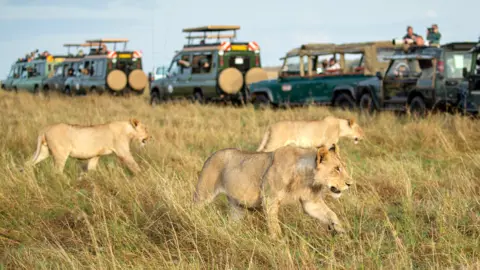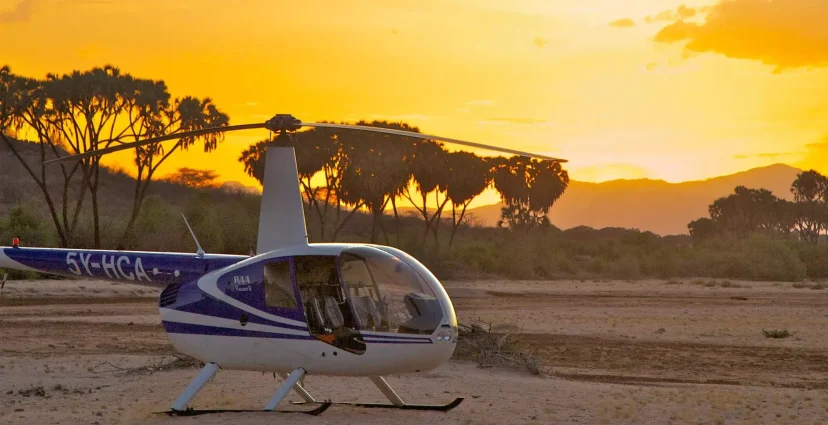Free Tips On Deciding On Kenya Day Tours
Free Tips On Deciding On Kenya Day Tours
Blog Article
What Precautions For Health I Need To Take While Travelling To Mombasa, Kenya For A Vacation?
To ensure you enjoy an enjoyable and safe trip in Mombasa Kenya, it is important to take the essential health precautions. Here are some important health considerations.
1. Vaccinations
Routine Vaccinations: Ensure that you are up-to-date on routine vaccines such as measles-mumps-rubella (MMR), diphtheria-tetanus-pertussis, varicella (chickenpox), polio, and your yearly flu shot.
Hepatitis A is recommended for everyone who travels because of the possibility that water and food could be contaminated.
Hepatitis B: Advised to travelers who may be exposed to blood or bodily fluids (e.g. via sexual contact, medical treatment, or use of drugs).
Typhoid: important for people who live with family or friends, visit smaller cities or areas, or have food-lovers.
Yellow Fever: A certificate of vaccination may be required for those who are traveling from countries at possibility of transmission of yellow fever. Make sure you are aware of the most recent requirements.
Rabies: People who may be at risk of bites from animals during outdoor activities such as camping, hiking or caving must be aware of this.
2. Malaria Prevention
Antimalarial Medication: Mombasa is a malaria-endemic zone. Talk to your doctor about the best antimalarial drug for you.
Avoid Mosquito Bites Use insect repellent with DEET, dress in long-sleeved clothes and long pants, especially in the evenings and at night and then sleep with the mosquito net, if you're not staying in an air-conditioned or a room with a good screen.
3. Food and Water Safety
Avoid drinking tap water and ice cubes. Beware of drinking tap and ice water.
Avoid eating meats that are raw or cooked, seafood and unwashed fruits and vegetables. Avoid raw or undercooked meats, seafood, and raw fruits and vegetables that have not been washed. Foods sold on the streets should be avoided. Instead, go to restaurants that are reputable.
4. Diarrhoea Traveler
Hand soaps and hand sanitizers are an excellent alternative to hand washing. Beware of drinking and eating food from sources that are not dependable.
Meds: Carry medicines such as loperamide (Imodium) as well as oral rehydration salts. You can consult your doctor to find out if antibiotics are needed for extreme cases.
5. Sun Protection
Sunscreen: Apply broad-spectrum sunscreen with an SPF of minimum 30. Reapply sunscreen frequently, particularly after swimming or sweating.
Protective Clothing: Wear hats, sunglasses and light, long-sleeved clothing to limit sun exposure.
6. Heat and Hydration
Keep hydrated: Drink plenty of fluids in order to prevent dehydration, particularly water. Avoid excessive alcohol and caffeine since they can cause dehydration.
Beware of overexertion: Take breaks, especially during the most hot times of the day. It is important to seek shade to prevent heatstroke and exhaustion.
7. Water Sports: Safety and Security
Swimming in Areas which are marked Follow local advice regarding swimming conditions. Be aware of potential hazards, like strong currents.
Marine Life Awareness: Stay clear of harmful marine life, like jellyfishes and sea urchins. Wear water shoes while walking in shallow waters.
8. Care and Insurance. Care and Insurance
Travel Insurance: Be certain to purchase an insurance policy that is comprehensive and covers evacuation in case of medical emergency.
Local Medical Facilities: Acquaint yourself with the address and the reputation of reputable local medical establishments. Hotels in the major cities provide details on hospitals and doctors in the vicinity.
You'll need your medications, as well as copies of your prescriptions.
9. Emergency Contacts
The Embassy: Contact the embassy from your home country in Kenya.
Local Emergency Numbers: Know the emergency numbers for your local area including Police (999) (999), Fire (999), and Ambulance (999).
Make sure you take these steps to limit your risks, and enjoy your vacation in Mombasa. View the most popular park funzi for site examples including trips to kenya safari, tours and travel company in kenya, tour mombasa, tour mombasa, kenya tour operator, safar kenya, safari trips in kenya, african safari packages, mombasa beach kenya, mombasa safari and more.
What Cultural Considerations Should I Be Aware Of Prior To An Event In Mombasa?
While traveling in Mombasa, Kenya, being mindful of your culture is crucial for ensuring respectful interactions with local people as well as to enhance your travel experience. Here are a few important considerations:
1. Be respectful of local dress codes
Mombasa has a large Muslim population. Dressing modestly is considered respectful, especially when in public, at places of worship as well as in the local neighborhood. This means wearing a dress that covers your shoulders, chest and knees.
Wearing swimwear is acceptable worn at the beach, but you should wear a hoodie when you go to restaurants or shopping in the vicinity.
2. Religious Sensitivity
Mosques: Ask permission before visiting a mosque and wear modest attire. Women should wear a head cover and all visitors should take off their shoes when entering a mosque.
Prayer Times: Make sure to keep track of the five times for prayer each day and show respect when you are praying, particularly in the vicinity of an Islamic mosque.
3. Photography Etiquette
Permission: Before you take photos of any person, always seek their consent. This is particularly important in areas of rurality or locations that have traditional values. People who are uncomfortable may believe that the photographs are too intrusive.
Restricted Areas - Avoid taking pictures of sensitive areas like military installations and government structures.
4. Social Interactions
Salutations: It's important to say hello politely. In Swahili one of the most popular greetings is "Jambo". Handshakes are common, but it's more respectful to Muslim women to hold their hands until they are extended or just greet verbally.
Respect your privacy. Be cautious of physical contact.
5. Cultural Norms & Taboos
Public Displays of Affection: Limit publicly displayed affection displays because they are typically frowned upon.
The Left Hand isn't employed. Use your left hand when eating, wishing people a happy birthday, or exchanging money and items.
Feet - It's considered disrespectful to point your soles of your feet towards them or to show them.
6. Language and Communication
Basic Swahili Learn some basic Swahili phrases can help you establish rapport and show respect to the locals. The most frequently spoken words include: "Asante" or "Habari" (both meaning "Thank you". ).
Politeness: Be patient and politeness in your communications. Kenyans expect courteous and respectful interaction.
7. Respect for Local Customs
Respect the customs and ceremonies of the past. If you've been invited to attend a local gathering, be attentive and follow your hosts.
Bargaining: Bargaining is common in markets and local shops, but it should be done respectfully and with good humor. This is not a threatening practice, but a cultural one.
8. Alcohol and Smoking
There is alcohol available to drink but it should be done discreetly. Beware of drinking in public.
Smoking: Smoking is generally prohibited in public areas. Smoking is permitted in designated areas.
9. Environmental Respect
Beware of littering. Be sure to eliminate your trash in a responsible manner. Be respectful of wildlife and natural habitats.
Conservation: Pay attention to the local wildlife, habitats, and conservation efforts. Do not purchase products derived from endangered species.
10. Helping Local Communities
Local Businesses: Help local markets, businesses and craftsmen to boost the local economy.
Responsible Tourism: Ensure that you select eco-friendly tourism which benefits the local population.
If you follow these cultural sensitivity guidelines, you will be able to have a more meaningful and respectful experience in Mombasa by increasing your knowledge and appreciation of the local culture. Have a look at the best mombasa city tour for blog tips including kenya safari holiday packages, trips to kenya, safari company kenya, africa and safari, tours and safaris, kenya safari and beach packages, africa in kenya, africa tours, travel tours in kenya, safari trips in kenya and more.
What Financial Planning Considerations Must I Be Aware Of Before I Travel To Mombasa Kenya?
It is important to plan your finances when you're on holiday in Mombasa. These are some key aspects to bear in your mind.
1. Budgeting
Accommodation: Reserve your lodging at least a month in advance. Prices vary widely based upon the type and location of lodging.
Transportation: Include all costs associated with flights, local transportation, (taxis matatus, taxis, and taxis), as well as possible excursions.
Food and Dining Budget for meals including dining out and snacks. You will find everything from cheap local restaurants to luxurious dining establishments.
Create tours and activities. This includes entrance costs for tourist attractions and guided tours as in addition to activities such as safaris and cultural tours, water sports and much more.
2. Exchange Rates and Currency
Kenyan Shilling (KES): This is the currency of Kenya. Familiarize yourself with the exchange rate.
Currency Exchange - Exchange your money with reputable currency exchange companies or banks. Don't exchange cash in the streets.
ATMs: ATMs are widely available in Mombasa. Check that your card can be used to withdraw money internationally. Also, check any fees.
3. Payment Methods
Cash: Bring some cash for small purchases or to tip. Also, carry cash in case you need it at places that don't take cards.
In hotels, restaurants and large retail stores, major credit cards can be used. Inform your bank of any travel plans in order to avoid having your credit card blocked.
M-Pesa: M Pesa has become an extremely popular mobile payment system in Kenya. If you own local SIM this is a great option to make transactions.
4. You can save money by following these simple tricks
Travel off season It is possible to save money by booking hotels and flights during the shoulder or low season (April - June, and between October and November).
Make sure to book early for the best deals on airfare and accommodations.
Local Eateries. Go to restaurants or food stalls in your area for a more authentic, and cost-effective experience.
5. Tipping
Tipping customary is Kenya. In restaurants, it's customary to tip 10% when there is no service offered. At your discretion, tip drivers, hotel staff and guides.
It's great to give small amounts of money in local currency. Tipping porters should be between KES 50 to 100 per bag. Tip housekeepers 100 kES per day.
6. Emergency Funds
Reserve Funds: Maintain an emergency fund of cash and ensure you have access to extra cash via a debit or credit card in case of an unexpected expense.
Travel Insurance: Buy comprehensive insurance for travel, that protects you from medical emergencies aswell in trip cancellations. Also, it protects you from theft and loss.
7. Security
Hotel safes are a great place to store important documents like passports, cash and other important items. When using ATMs in darkness, be extra cautious.
Avoid carrying huge sums Do not carry huge amounts of in cash. Divide your credit cards and cash between the wallet and the place that's secure.
8. Local Transactions
Local markets are a common location to shop. Treat it with respect and good humor, and try to reach a fair price.
Receipts: Save receipts for big purchases. This is useful to track budgets and also when there are disputes.
9. Understanding Fees
Check with your bank to see the fees related to international withdrawals. Some ATMs charge an additional fee if you are using a foreign credit card.
Currency Conversion Costs. Be aware of any currency conversion fees charged by your bank if you use a credit card or debit card abroad.
You will be able to enjoy a stress-free trip to Mombasa by managing your finances efficiently. Check out the recommended mombasa city tour for website advice including mombasa safaris kenya, mombasa beach kenya, trip tour companies, mombasa travel agency, african safari kenya, kenya travel packages, african safari excursions, mombasa safaris kenya, kenya safari holiday, mombasa safari packages and more.